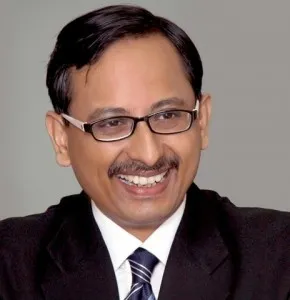How India's premier stock exchange is making a difference to entrepreneurship
If entrepreneurship and starting up is on an upswing in India then it is only right that the hotbed of business – Bombay Stock Exchange (BSE) is involved in it. Some days back we wrote about the partnership between the 11th largest stock exchange in the world with Canada based Ryerson University. The two entities have come together to form a startup incubator and be a go-to avenue for startups in India, which is being done through its entity BSE Institute. Ambarish Datta is the MD of BSE Institute. Before assuming this role, Ambarish headed the technology aided learning group at Reliance Retail Limited and was responsible for a nationwide roll out of e-learning and blended learning programs. He has over 15 years experience in sales and execution of technology solutions, and has extensive domain knowledge in SCM, retail, BFSI, eLearning solutions, and manufacturing businesses. We caught up with the head honcho to understand the plans BSE Institute has to promote entrepreneurship in India. Excerpts.

What they have to offer
The origin of BSE itself is quite entrepreneurial and dates back to pre-Independence. Over the years as the entity has grown, it has undertaken various initiatives to encourage as well as improve understanding of financial markets in the country. Now the spotlight is on entrepreneurship. “BSE has probably been the earliest promoter of entrepreneurship in India. It has always been the place for people to meet investors, raise funds and do business. There has never been a better place to do things. The institute has had the culture of developing entrepreneurs and skill development for quite sometime, though it has been an informal exercise,” says Ambarish.
The partnership with Ryerson will be leveraged to setup an India-based incubator for entrepreneurs. The collaboration will also help entrepreneurs have access to the Canadian market for expansion, to meet investors and tap the Canadian entrepreneurial ecosystem for any other purpose that they may need. The Institute recently announced a competition to promote startups in India in partnership with Ryerson University and Government of Ontario. Called “The Next Big Idea” contest, winners of the contest can have a shot at winning a 3-week trip to Toronto, Canada’s high-tech capital. There, they will be provided access to the Digital Media Zone at Ryerson University, a startup incubator. Participants will also be provided an opportunity to meet mentors, industry experts, entrepreneurs and investors in Canada. The contest is open to Indian companies in areas such as clean technology, digital media, IT, life sciences, or any other tech innovation.
In the short term, Ambarish says the Institute has plans to conduct more such cohorts in partnership with Ryerson University. However in the long run, Ambarish says BSE Institute will behave more like an angel fund and incubator, which provides financial help, mentorship as well as any other kind of assistance required by a startup. “We will take a step-by-step approach towards our mentorship program, we don’t want to make any lofty plans at this point, but will take one step at a time. We will be the first stock exchange in the world to be starting and setting up an incubator program. We want to do things which are sustainable and long term. As an stock exchange we interact with large number of corporate stakeholders, financial institutions and are a fountainhead for anything related to finance and in that sense, it is coming together. All startups working here can leverage from the vast pool of knowledge and connections that we have to offer,” says Ambarish.
Also on cards for the future is setting up of a co-working space and establishment of a seed fund for startups.
Indian startup space
Ambarish believes entrepreneurship will prove to be a game changer for India in the coming years and is a very important component for the growth of the economy. “We are looking at a 500 million skill gap in the next few years. While the institute is doing things to build skills, the fact is if you train one person in skills, he alone becomes proficient in those skills. But if you train an entrepreneur, you are able to create atleast 100 more jobs. And if we have to create so many jobs to remain at the current level that we are, then entrepreneurship is the only way,” he says.

For this mass revolution to take place, one of the initial steps is for more and more people to talk about entrepreneurship. “There is a fair amount of space for all of us to co-exist. The idea is not to compete, but be inclusive and take people along with you,” says Ambarish about how BSE Institute will compare to other VC funds and incubators in the country. He believes that more people should talk about entrepreneurship, so that it can encourage people to come aboard. And so that more people get interested in the whole process, Ambarish believes there has to be a ‘for profit’ motive. “A ‘for profit’ model will help things to grow and achieve scale. There will be some bad people who will try to take advantage but that should be a deterrent for what we want to achieve,” he advises.Ambarish suggest that the subject of starting up and entrepreneurship should be made compulsory in college, so that everybody gets a taste of it. “Courses can be designed and taught, so that people are more aware of the whole concept in general,” he says.
If all these different pieces of the puzzle were to fall in place, then he believes it will be easier to even influence macro changes at policy level. His wishlist for policy changes includes considerations to be given in taxation, compliance and reporting. “Things should be simplified more. Building high walls that are difficult to scale is a bad idea,” he asserts.







